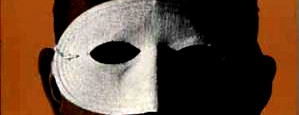When even a mainstream magazine such as TIME highlights the fact that the world’s oceans are in imminent peril, alarm bells should be ringing loud and clear. In Jeffrey Kluger’s short, but punchy article, “Troubled Waters” (TIME, February 2, 2015, pp 12-13) the central photograph says as much, if not more than, his prose. This […]
Bert Olivier
As an undergraduate student, Bert Olivier discovered Philosophy more or less by accident, but has never regretted it. Because Bert knew very little, Philosophy turned out to be right up his alley, as it were, because of Socrates's teaching, that the only thing we know with certainty, is how little we know. Armed with this 'docta ignorantia', Bert set out to teach students the value of questioning, and even found out that one could write cogently about it, which he did during the 1980s and '90s on a variety of subjects, including an opposition to apartheid. In addition to Philosophy, he has been teaching and writing on his other great loves, namely, nature, culture, the arts, architecture and literature. In the face of the many irrational actions on the part of people, and wanting to understand these, later on he branched out into Psychoanalysis and Social Theory as well, and because Philosophy cultivates in one a strong sense of justice, he has more recently been harnessing what little knowledge he has in intellectual opposition to the injustices brought about by the dominant economic system today, to wit, neoliberal capitalism. His motto is taken from Immanuel Kant's work: 'Sapere aude!' ('Dare to think for yourself!') In 2012 Nelson Mandela Metropolitan University conferred a Distinguished Professorship on him. Bert is attached to the University of the Free State as Honorary Professor of Philosophy.
Teaching and learning in the ‘network society’
Teaching at university in the early 21st century requires of lecturers that they take the “lifeworld” in which students live seriously. This lifeworld comprises what Manuel Castells (2010) calls the “Network Society” (see here) – a global society that has actualised an ever-expanding web or network of electronic means of information and communication. The fact […]
Nietzsche, Heidegger and creativity
In the course of preparing for a doctoral seminar on Sigmund Freud, Friedrich Nietzsche and Martin Heidegger, I was struck, once again, by the creative thinking on the part of these epoch-making figures, as well as its implications for creativity. Freud’s creativity is evident, to mention only one thing, in the fact that, as far […]
The dream of Jormungand – Japanese anime and wish-fulfilment
The more I see of Japanese anime, the more I am impressed by, and the better I understand the way that many of these popular movies address serious issues. A while ago I wrote on the anime series Psycho-Pass and its pertinence for the question of societal control, and I have just finished watching another […]
Can artificial intelligence be controlled beyond a certain point?
In a recent TIME magazine (December 29, 2014, p20), there’s a short article by futurologist and outspoken techno-optimist Ray Kurzweil titled “Don’t fear Artificial Intelligence” (AI). He cites two highly creative individuals – Stephen Hawking and South-African born Elon Musk – as representatives of “the pessimistic view” before putting forward his own optimistic argument regarding […]
Understanding ‘world politics’ today – Rancière and Žižek
What I have in mind with this title pertains mainly to the work of that inimitable philosopher Jacques Rancière who has infused political thinking with new life, given the fact that it has become moribund under the dead weight of largely irrelevant liberal political theory and the idea that all politics is governed by the […]
Charlie Hebdo, laughter, dogma and ‘truth’
The recent “terrorist” attacks at the satirical magazine, Charlie Hebdo, in Paris, France, is a stark reminder of something that the Italian semiotician, philosopher, novelist and universal scholar Umberto Eco thematised in his first novel, The Name of the Rose (1998), namely, the supposedly negative, mutually exclusive relationship between what is taken to be absolute, […]
A novel that can teach us how to rebel against the colonisation of the mind
What do you get when you project the present media-saturated and media-sustained global economic-political hegemony into the future? You get a society where the kind of colonisation of the mind, brought about mainly through mainstream media’s incessant distribution of standardised discourses affirming the nonsense, that there is “no alternative” to neoliberal capitalism, is exacerbated to […]
Fanon and the question of ‘white theory’
It is undeniable that Frantz Fanon identifies European, or “white” culture as racist to the core. It is equally undeniable that he affirmed the likelihood of the discourses of knowledge emanating from this culture being equally racist. It stands to reason that a culture, which regards itself as being superior to all others, given its […]
The Apple Watch, history and creativity
It’s a very good thing that TIME magazine’s tech writer, Lev Grossman, is an intelligent guy, even when he teams up with others, such as Matt Vella, in the writing of an article called “Wearing the Internet”, on Apple’s newly introduced Apple Watch (TIME, September 22 2014, pp. 28-33). Anyone less intelligent is likely merely […]
Cultural embodiments of the life and death instincts in human beings
Since the 19th century, when the heirs of 17th- and 18th-century British empiricism started thinking of the social implications of the empiricist doctrine, that all we know comes from experience, thinkers like Lord Shaftesbury and his ilk have believed that human society was “perfectible”. After all, if society could be arranged in such a way […]
Economy of luxury: We’re like rabbits caught in the headlights
Many readers will be familiar with Watership Down, Richard Adams’ wonderful, albeit sometimes terrifying, allegorical tale of a band of rabbits fleeing from a doomed warren (at the instigation of Fiver, a clairvoyant rabbit, who “saw” the imminent destruction of the warren by humans to make way for a building construction development). In the novel […]


